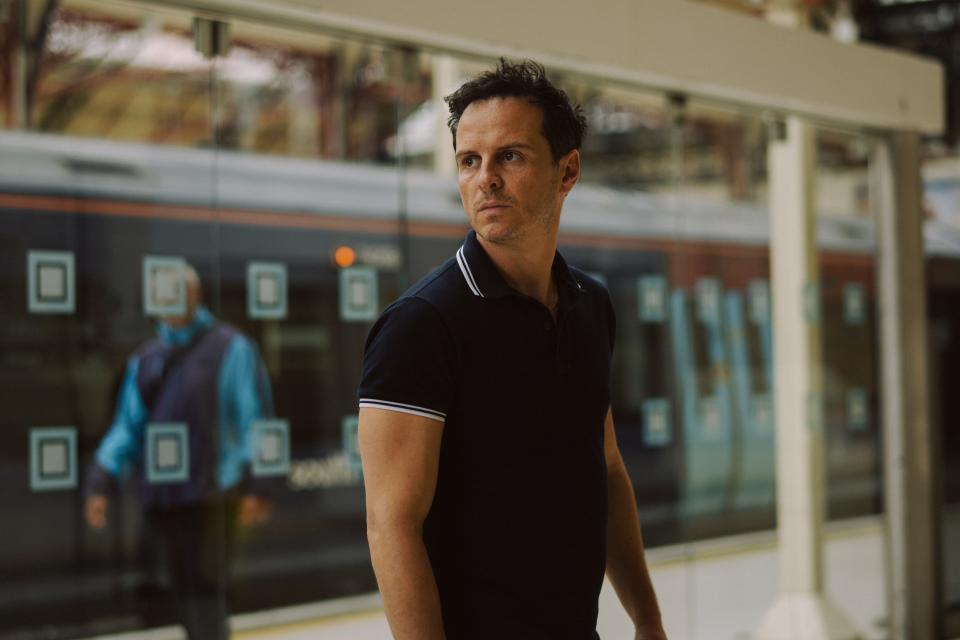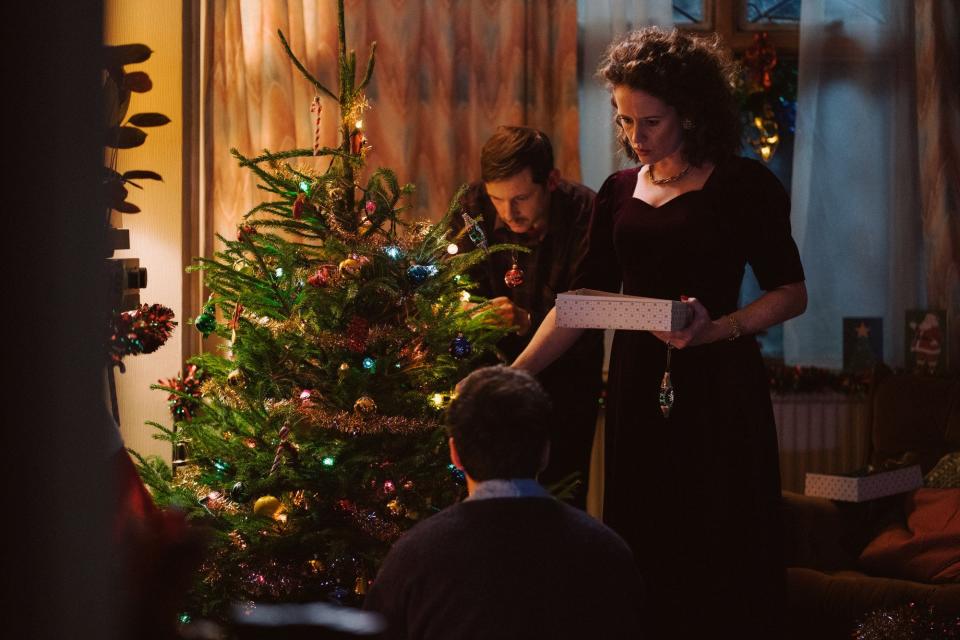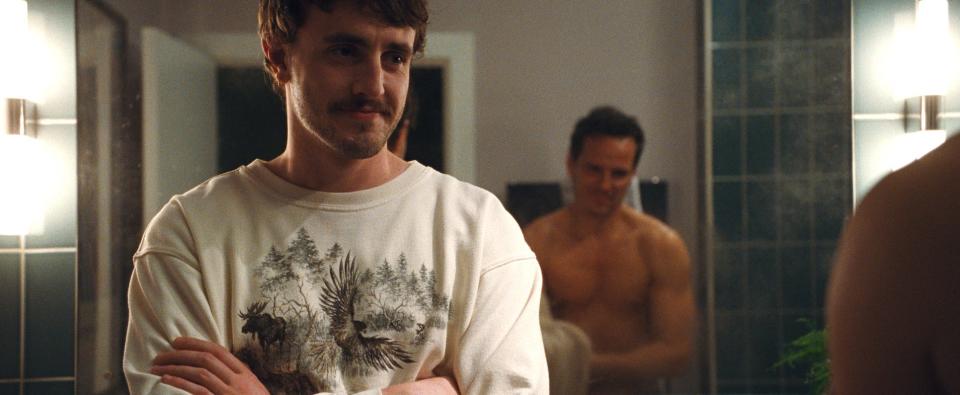'All of Us Strangers' movie review: A beautiful ghost story you won't soon forget
What if you could have one more conversation with a lost loved one? What would you say? Would it help you move on or just entrench you more in the past?
Writer/director Andrew Haigh’s brilliant “All of Us Strangers” (★★★★ out of four; rated R; in select theaters now, nationwide Friday) is both lyrical fantasy romance and masterfully told ghost story. To call it haunting might be trite but also spot on: With a terrific performance from Andrew Scott as a queer screenwriter at a crossroads, “Strangers” is the sort of cinematic balm that not only touches your soul but takes up prime real estate.
Adam (Scott) lives an isolated life in his weirdly empty London high-rise apartment complex, noshing cookies on the couch rather than working. He decides to travel to his childhood home in the suburbs, a trip where he runs into his dad (Jamie Bell) and mom (Claire Foy). Mind you, they died in a 1987 holiday car accident just before Adam turned 12, but he finds them again – at around the same age he is now – full of questions for their now grown-up boy.

Adam visits often and engages in the heartfelt conversations they would have had if his parents lived. He comes out to his mom, who’s stuck in a 1980s mindset and worries about AIDS, and has an emotional and honest conversation with his father about childhood traumas that leave both of them in tears.
At the same time he’s opening up to them, Adam finds the creative juices flowing again and also begins a relationship with his downstairs neighbor Harry (Paul Mescal). At first, Harry shows up at Adam’s door with booze, with Adam rebuffing his advances (and almost immediately reconsidering), but he begins to lean on Harry for comfort, support and the occasional ketamine-fueled night out. But what throws Adam is when these two different relationship journeys begin to tie together and unravel in delirious fashion.

Haigh, whose film is an adaptation of Taichi Yamada’s novel “Strangers,” fills the screen with warm, colorful textures, and many of the characters are seen in reflections, be it on a metro train or in a home, which adds to the film’s fanciful reverie. (It also uses Frankie Goes to Hollywood's "The Power of Love" to interesting narrative effect.) Adam and his mother even have a conversation about whether what they’re experiencing is real and how long it will last. “I don’t suppose we get to decide when it’s over,” she says, one of the film’s most touching lines.
“Strangers” isn’t the first to mine similar metaphysical ground – “Field of Dreams” did it magnificently as well, though this movie goes further in reconnecting a son with the mom and dad who suddenly weren’t in his life anymore. They ask Adam about the circumstances of their demise, and he’s extremely caring in those moments, though he's more open with Harry about how their deaths led to his solitude. The film tackles the way people relate to their parents, face loneliness, come to grips with their sexuality but also struggle with thinking that the future doesn’t matter.

Scott is the perfect conduit for such a thoughtful exploration of feelings, and it’s a star-making role for an actor who should already be one after his deliciously demented Moriarty on TV’s “Sherlock” and delightful Hot Priest on “Fleabag.” As Adam, Scott captures the boyish glee and wonder of seeing his parents again around a Christmas tree yet also the panic and worry that only comes when you truly care for somebody.
While examining love, grief and the phantoms we carry with us, Haigh leaves much of his sweetly elegiac character study to a viewer’s interpretation. Everyone will read different things into what it really means from beginning to quietly stellar end, and in that sense, we might be “Strangers” but we’re all human.
This article originally appeared on USA TODAY: 'All of Us Strangers' review: This is one ghost story you won't forget
